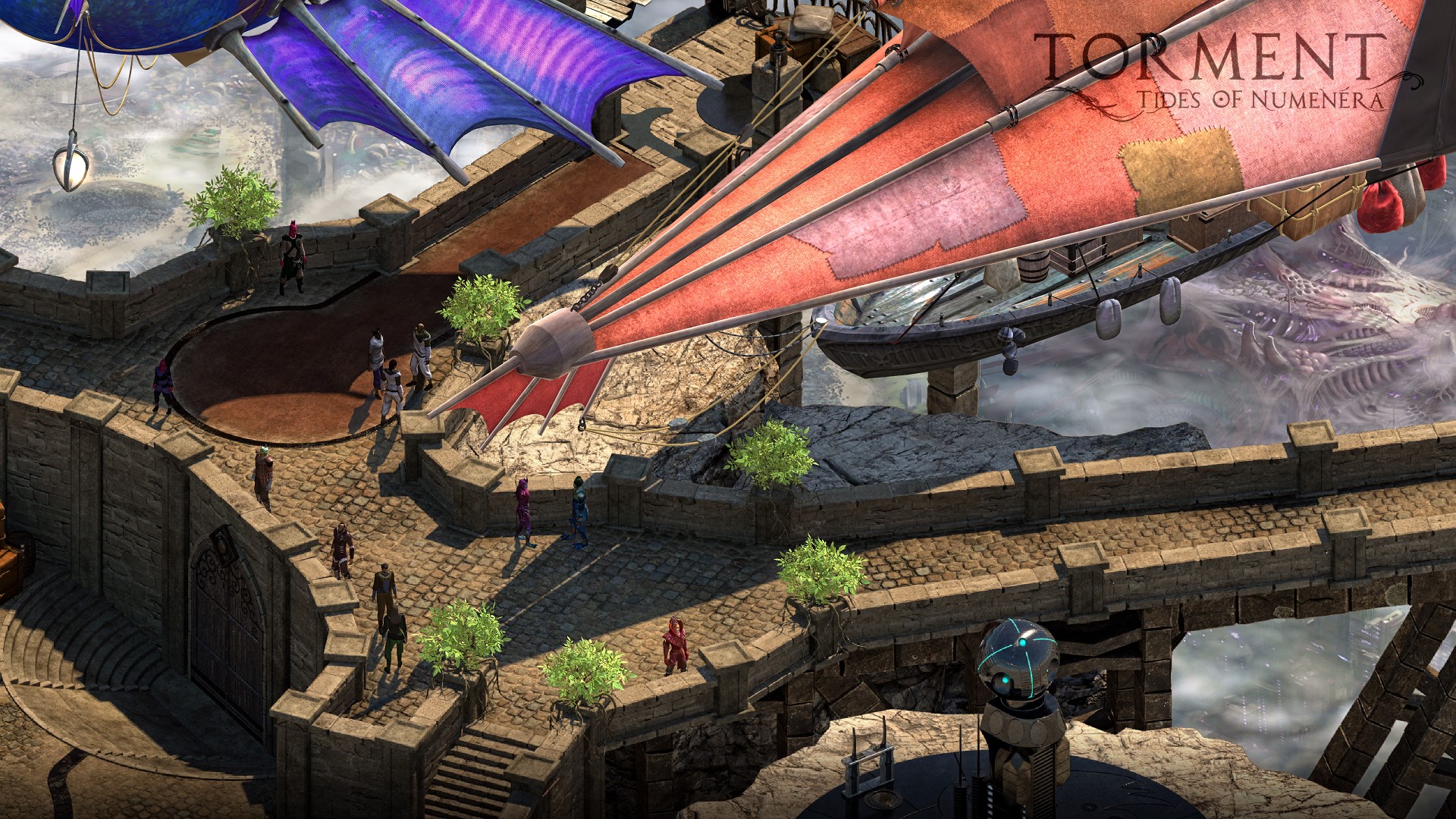Planescape: Torment released in 1999 and grew to become one of the greatest cult hits in video game history, and fans were overjoyed when a campaign for a follow-up, Torment: Tides of Numenera, was proposed on Kickstarter more than a decade later in 2013. The campaign quickly broke records by being the fastest game to reach $1 million, which is $100,000 past its initial $900,000 goal. Then it broke another record when it brought in over $4 million in funding, making it Kickstarter’s biggest video game campaign of all time.
It’s been a long journey from its Kickstarter origins, including a release on Steam Early Access last year, but the game is just a few weeks away from its official February 28 launch date. The developer, inXile Entertainment is well-versed in crowdfunding and producing top-quality role-playing games, having run a very successful Kickstarter campaign for Wasteland 2 while launching the one for Torment.
Brian Fargo, CEO of inXile Entertainment, spoke to [a]listdaily about bringing back a beloved franchise and what where a game can go after such a high-profile crowdfunding campaign.

What are some of the big lessons Torment: Tides of Numenera and Wasteland 2 taught you about crowdfunding?
Certainly, there are a number of lessons we can take away from a crowdfunding campaign. The first is that there is nothing as valuable as gameplay feedback from your audience. We can play the game internally for a thousand hours and apply our historical knowledge and instincts but we can never anticipate fully how the gamers will react to things. This has been critical in allowing us to make a better game.
We’ve also learned the need for strong communication. We make thousands of decisions during development that affect content and dates and we can lose track of the need to communicate these changes when they become solidified. I’ve often spoke to the difficulty of setting deadlines before the coding begins and the only way to buffer that risk is with communication.
How will you reach out past the initial audience of backers after the game launches? How does a game like Torment continue to grow after such a big and high-profile Kickstarter campaign?
Our games will only sell beyond our initial backers for the same reason that all games sell in greater numbers: quality. Crowdfunding gives us an opportunity, and making a game the way we want to make a game gives us awareness in a noisy field, but ultimately word-of-mouth is all you have after launch. Wasteland 2 sold well beyond the initial backers, as did games like Divinity: Original Sin and Pillars of Eternity.
Has Early Access helped to further promote the game?
Early Access helps both with awareness and the audience feedback I spoke of earlier. The amount of game releases these days is staggering, and it could take reading about or seeing a game over 100 times before your brain starts to really register it, so awareness through things like Early Access can be paramount.
How do you balance between expectations from Planescape: Torment fans and those who haven’t played it?
I think the number one question I get is some version of how we bridge these older games with the next in the series. Our philosophy is to identify which elements people loved in the previous game and try to hit those points in a fresh, non-derivative way. For Torment, we knew it was the writing, the bizarre nature of the world, the lack of emphasis on combat and the philosophical tones it struck. We took those points and have presented them in a unique way in Torment: Tides of Numenera and the players who loved Planescape: Torment have strongly indicated that they are happy with the way we did it.

Which do you think had a greater impact on Torment: Tides of Numenera’s early success, nostalgia for old school style RPGs or the Torment brand name?
It was all those factors coming together that made Torment: Tides of Numenera break the world record on Kickstarter for fastest to $1 million. As a producer, I look to find the right team, elements and timing to fund our games and make them sell. With our success, we can continue making these wonderful games.
Why do you think so many people still love Torment-style RPGs, when there are so many action shooter role-playing games out now?
We believe that good writing, deep cause and effect and novel storytelling can transcend a more action-oriented approach to RPGs. The talented folks at Telltale Games have certainly proven that you can do really great things with narrative and still have success. And even folks that play more action-oriented RPGs may enjoy trying something that moves at a different pace. I’ve enjoyed experimenting and pushing the art form with these RPGs.

